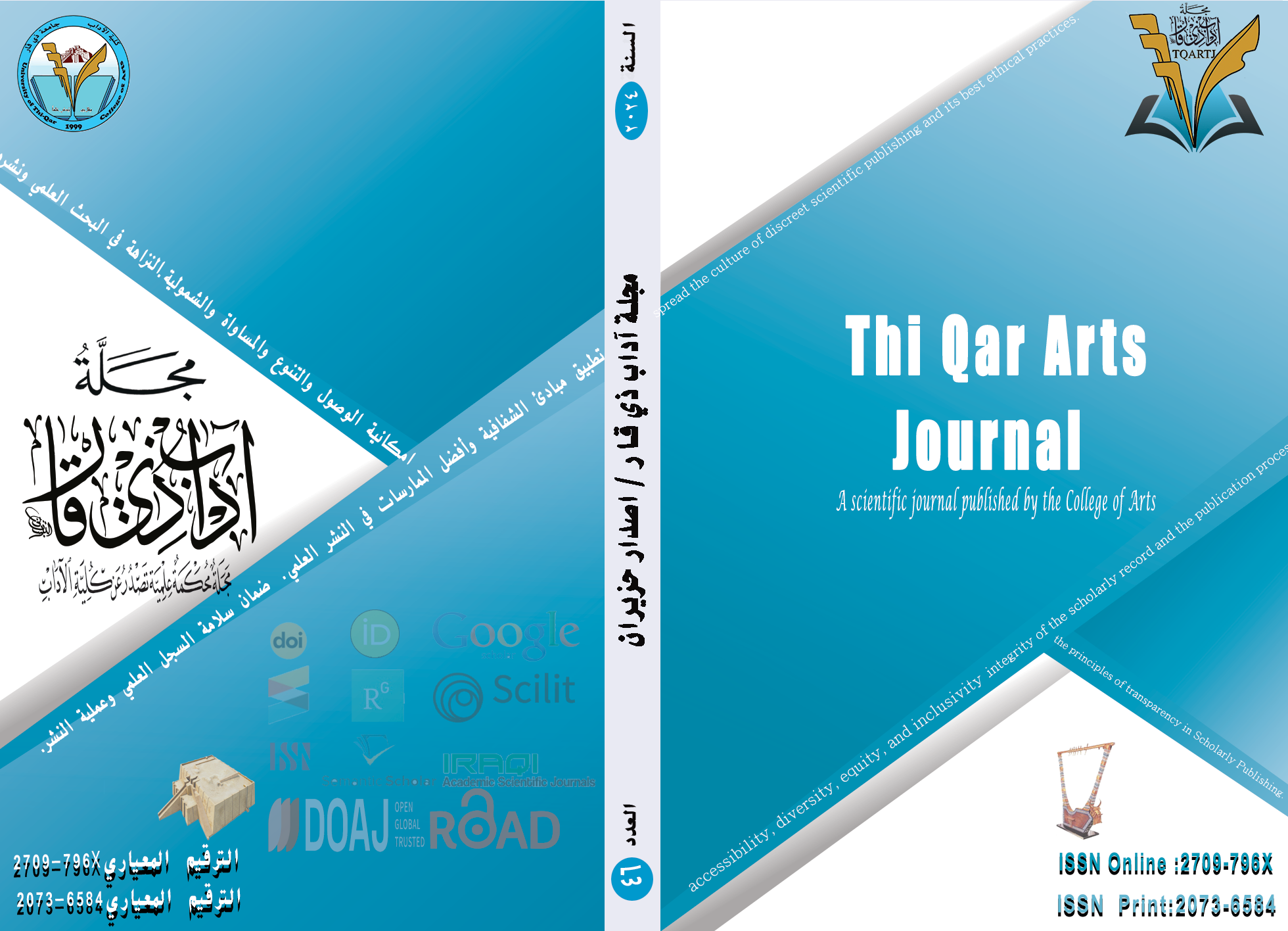Philosophy of digital literature
DOI:
https://doi.org/10.32792/tqartj.v4i46.583Keywords:
digital literature, philosophy, interactivityAbstract
There were a vision, a philosophy, and an intellectual trend that lie behind every phenomenon in the universe as a pressing need for its age and general features. The digital literature is the literature of the age and its openness to other worlds made the study seek to understand and clarify that philosophy which sits behind the digital literature, attempting to go beyond what is known in terms of literary practices. This study aims to reveal this philosophy which was embodied from the current philosophy based on freedom and absolute openness, leading to appearance of the digital literature that reinforces this philosophy which constitutes its formation and release. Therefore, the study intended to explore the digital texts in some digital platforms to reveal these practices and their differences through the selected digital literary texts. The study also traced the impact of this philosophy on the text by observing the act of interaction and how it is done by the interactive creative recipient, whose interaction exceeded the previous negative receiving, and was close to the space of the writer in producing, reading, and interacting with the text. At its beginning, the study showed the relationship of philosophy with literature, art, and knowledge. Then, the study attempted to elucidate the philosophy of digital literature and sought to reveal its characteristics and effects, using the analytical descriptive approach. It also utilized a semiotic approach and the convergence theory to analyze texts and read them critically. The study concluded with the results and recommendations.
Downloads
References
List of Sources and References:
Ibrahim Al-Najjar, Introduction to Philosophy, Arab Cultural Center, Casablanca - Morocco, 3rd edition, 2019.
J. Gadamer and Mohamed Khattabi, Philosophy and Literature, Alamat Magazine, Issue 14, 2000.
Khaled Adly, Freedom of Expression Between Principle and Restriction, Lawyers Association in Oujda, Issue 16, Volume 17, 2014.
Said Yaqtin, The Hypertext and the Future of Arab Culture Towards Digital Arabic Writing, Cultural Center, Casablanca - Morocco, 1st edition, 2008.
Sayed Yassin, Forming Identity and Globalizing Imagination, Jerash Cultural Magazine, Jordan, Issue 3, Fall 2005.
Safia Alia, Prospects of Literary Text in the Context of Globalization, Academic Book Center, Amman - Jordan, 1st edition, 2018.
Mohamed Shahada, Philosophy of Literature, Arab Heritage, Issue 154, 2019.
Mohamed Shawqi Al-Zain, Philosophy of Formation and the Idea of Culture, Dar Al-Rawafid Al-Thaqafiya, Beirut - Lebanon, 1st edition, 2022.
Mohamed Ghoneimi Hilal, Contemporary Issues in Literature and Criticism, Dar Al-Nahda, Cairo - Egypt.
Musaad bin Saeed Al-Bakhat, My Philosophy on Contemporary Issues, King Fahd National Library Cataloging, Riyadh, 1442 AH.
Mushtaq Abbas Maan, The Infinities of the Firewall, Dr. Mushtaq’s website at: … Resistance … (dr-mushtaq.iq)
Moayad Saeed Salem, Organizing Organizations: A Study in the Development of Thought Over a Hundred Years, Modern Book House, Amman - Jordan, 2002.
Boland. Barthes: s/z',edition seuil,paris,1970.
Downloads
Published
License
Copyright (c) 2024 Aisha Al Barqa

This work is licensed under a Creative Commons Attribution 4.0 International License.
The journal applies the license of CC BY (a Creative Commons Attribution International license). This license allows authors to keep ownership of the copyright of their papers. But this license permits any user to download, print out, extract, reuse, archive, and distribute the article, so long as appropriate credit is given to the authors and the source of the work. The license ensures that the article will be available as widely as possible and that the article can be included in any scientific archive.



















